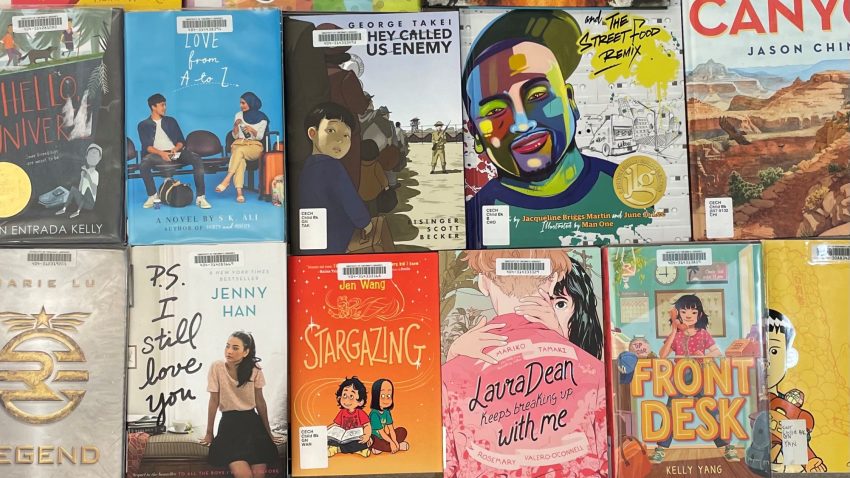 All University of Cincinnati Libraries locations will be closed Monday, May 31 in observance of Memorial Day.
All University of Cincinnati Libraries locations will be closed Monday, May 31 in observance of Memorial Day.
Regular library hours for all locations will resume Tuesday, June 1.
Have a safe holiday.

 All University of Cincinnati Libraries locations will be closed Monday, May 31 in observance of Memorial Day.
All University of Cincinnati Libraries locations will be closed Monday, May 31 in observance of Memorial Day.
Regular library hours for all locations will resume Tuesday, June 1.
Have a safe holiday.
 Mark Chalmers, science and engineering librarian, has been accepted into Drexel University’s highly selective Library Information Science (LIS) Education and Data Science Integrated Network Group (LEADING) program as a 2021 LEADING Fellow.
Mark Chalmers, science and engineering librarian, has been accepted into Drexel University’s highly selective Library Information Science (LIS) Education and Data Science Integrated Network Group (LEADING) program as a 2021 LEADING Fellow.
The LEADING program is a Laura Bush 21st Century Librarian (LB21) National Digital Infrastructures and Initiatives project, supported by the Institute of Museum and Library Services (IMLS) and hosted at Drexel University’s College of Computing & Informatics (CCI). The LEADING program scales-up the highly successful LEADS-4-NDP initiative and will prepare a diverse, nation-wide cohort of 50 LIS doctoral students and early to mid-career librarians for data science endeavors.
LEADING Fellows will complete the following:
Mark’s LEADING Fellow research project will focus on “Assessing Overlap and Aggregation Potential of Open-Source Software Platforms and Their Data.” LYRASIS, a consortium that provides access to the world’s shared academic, scientific and cultural heritage, currently offers six hosted services on open-source software. Five of the six of which involve academic libraries and their cultural heritage assets. As a result, LYRASIS seeks expertise in cultural heritage metadata and data science to assist in assessing this overlap between platforms. In addition, they seek recommendations on how machine learning models can be leveraged to connect data in different platforms and to assess how researchers can be served by access to data across the different platforms.
“I am eager to work with Drexel and LYRASIS to grow my competencies in the domains of data science, data integration, large scale machine learning and exploratory feasibility projects,” said Mark upon learning of his acceptance into the LEADING program.
“The experience and skills Mark will gain as a LEADING Fellow will not only contribute to the completion of the LYRASIS research project, but he will bring new knowledge back to his role in the Science and Engineering Libraries while at the same time contributing to the university’s digital future and open access agenda,” said Xuemao Wang, vice provost of digital scholarship and dean and university librarian.
While Summer is usually a quiet time around the college, we know that some people are still diligently working and learning. To help support you this summer, the UC Clermont Library is hosting 2 virtual events. We hope you can join us!
This Association of College and Research Libraries’ (ACRL) Spring 2021 Digital Scholarship Section featured “Digital Integrator & Transdisciplinary Research Partner,” a virtual panel highlighting the University of Cincinnati’s Digital Scholarship Center’s (DSC) unique model and work with research teams focused on misinformation and missing information.
The DSC partnered with UC Libraries’ Research and Data Services Team and the Department of Journalism to research Twitter’s impact on misinformation, false information and conspiracy theories about coronavirus. Using machine learning and linguistic analysis, the team also partnered with Cincinnati Children’s Hospital Medical Center to understand the role of missing information in electronic health records as it relates to social determinants of health. During the presentation, the panel discussed the unique organization of the DSC and its partnerships on campus and how health information professionals and the DSC work together on research projects involving social media, social justice and social determinants of health. The recording and slides are available online.

May is Asian American Pacific Islander (AAPI) Month. To celebrate, the CECH Library has created a list of books by AAPI authors.
Update: The use of the term #OwnVoices has been discontinued by We Need Diverse Books and the booklist below has been updated to reflect that. #OwnVoices has been used by many publishers/bookstores as a catch all for diverse authors and illustrators, making it a vague term that hides the diverse identities of the authors and the book characters from the narrative. Why We Need Diverse Books Is No Longer Using the Term #OwnVoices.
What makes a book Own Voices?
An Own Voices book is one that is written by an author that is part of an under-represented group that features characters that are also part of that group. For example, if an author is part of the LGBTQ+ community and they write about a character that is also part of the LGBTQ+ community then that book is an Own Voices book.
#OwnVoices was created by Corinne Duyvis, a young adult author and co-founder of Disability in Kidlit. She created the hashtag to share diverse children’s literature.
Why are Own Voices books important?
Own Voices books amplify diverse voices and provide necessary and important representation on our shelves. When book authors identify with the same group as their characters, they are more likely to have accurate and nuanced portrayals of that group than an author who is an outsider. Own Voices books are also less likely to perpetuate harmful stereotypes.
How can I find Own Voices books?
Many libraries, bookstores, and publishers develop Own Voices book lists. You can also search for #OwnVoices on social media to find reviews and book lists. CECH Library’s AAPI book list is also available via our Children’s and Young Adult Literature LibGuide.
Interested in learning more?
Post and book list by Haley Shaw, CECH Temporary Librarian